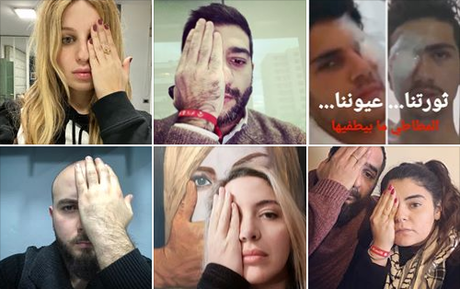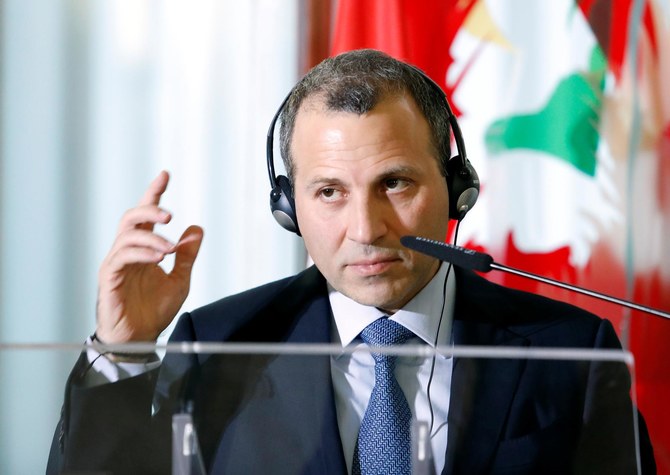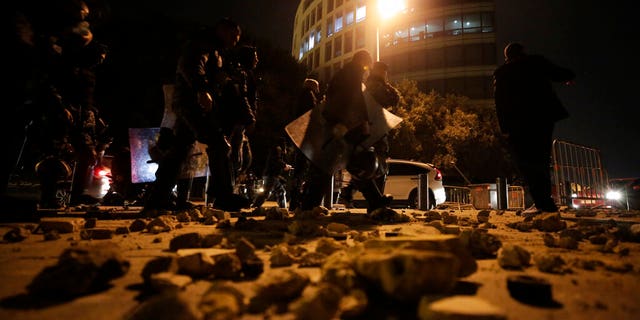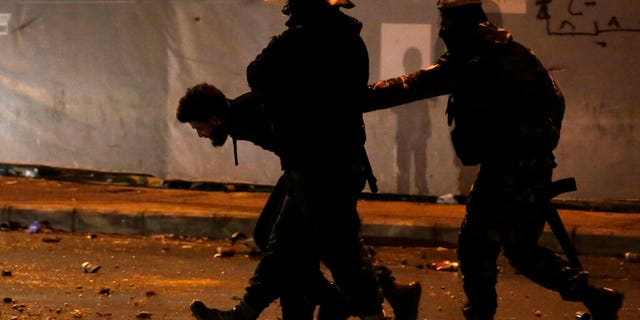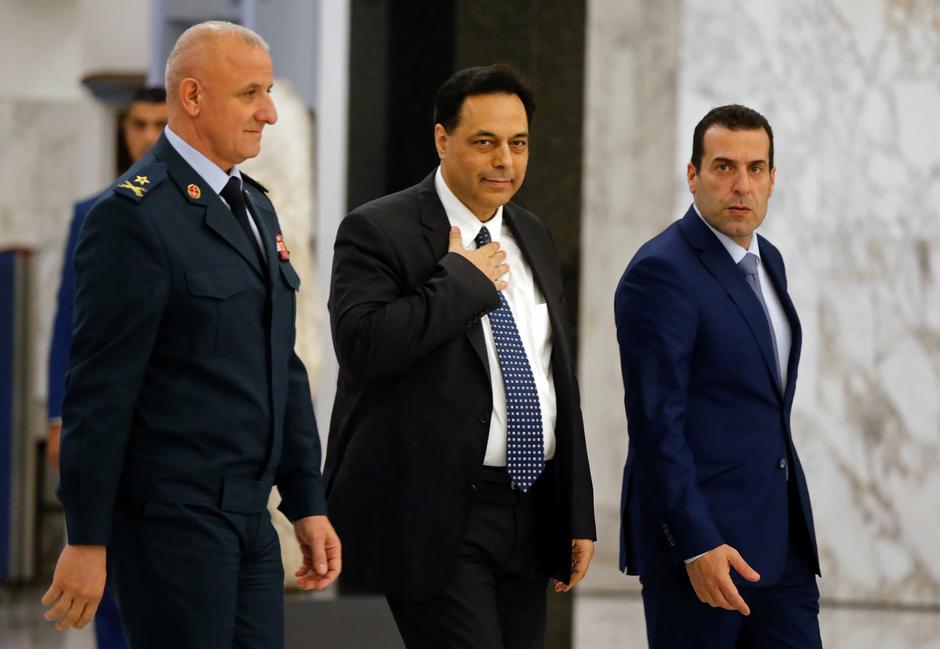![Stones are seen on the ground as Lebanese police gather during a protest against the newly formed government in Beirut [Aziz Taher/Reuters]](https://www.aljazeera.com/mritems/imagecache/mbdxxlarge/mritems/Images/2020/1/22/de1922059dd446c8920e3b7f526396c4_18.jpg)
by aljazeera.com Farah Najjar– Beirut, Lebanon – Violent demonstrations were witnessed on the streets of central Beirut as protesters gathered in the heart of the capital near the main entrance to parliament, which has been heavily fortified with barbed wire, steel gates and metal plates. Protesters lobbed stones, firecrackers and street signs at riot police, who fired water cannons, tear gas and rubber-coated bullets in a bid to clear the area. Security forces stood behind the fortified wall as reinforcements were sent to block demonstrators from passing through via parallel roads in the area.
Lebanon announced the formation of a new government on Tuesday following three months of political blockade. However, the protesters say the new government comprises the same people they have been rallying against since October 17. “We want the government to work according to our needs. If not, to hell with them,” said Mohammed, a 23-year-old protester who is from Tripoli, in the country’s north, and who was present in the Beirut demonstrations. “If anything, the old cabinet that we rallied against is slightly better than this ‘one colour’ government,” he said, using a term to describe the new cabinet backed by Hezbollah and its allies.
Protesters have been calling for sweeping reforms and a government that is led by independent technocrats and that can deal with the crippling economic crisis and widespread corruption. Protesters reject members belonging to the current political elite, which has ruled Lebanon since the end of its civil war in 1990 and is considered responsible for the country’s economic crisis. “They’re still stealing from us. We don’t have electricity, we don’t have hospitals, and we are starving to death,” Mohammed added. “We’re forced to escalate, the revolution is no longer peaceful … we gave them a chance for 30 years.”
‘They’re playing with us’
Lebanon has been without an effective government since caretaker Prime Minister Saad Hariri, under pressure from protests against state corruption and mismanagement, resigned in October. The country’s newly appointed Prime Minister Hassan Diab pledged on Tuesday that his government “will strive to meet their [the protesters’] demands for an independent judiciary, for the recovery of embezzled funds, [and] for the fight against illegal gains”. He also said his cabinet will adopt financial and economic methods different from those of previous governments, amid the country’s worst economic crisis in decades. But protesters insist that only a government of independent experts will have what it takes to save the country. Calls to dismantle ruling parties, which include groups that transitioned into politics since the country’s civil war, have also been a major demand of the protesters. “It’s bullsh*t … they’re playing with us. They are the same people with different faces,” Stephanie, a 30-year-old protester, said of the new government. “People are here because they have no jobs and they’re trying to tell the government that a change if needed. “But nothing is happening … they’re still robbing us, torturing us, [and] treating us like we don’t deserve anything good,” she said.

